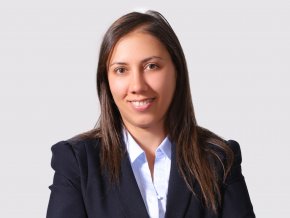The politics of water scarcity in the Levant
The Middle East is the most water scarce region in the world. In this webinar we will consider the causes and consequences of this water scarcity. We will discuss how climate and management of water resources impacts this water crisis.
Three speakers will provide perspectives from the Levant: an exploration of the politics behind policies of water allocation in the case of Jordan, thoughts on food security in water scarce regions whilst protecting the livelihoods of farmers, and discussions on the implications of water scarcity on vulnerable communities in the Levant.
Register for this event here.
About the speakers:
 Hussam Hussein is a lecturer in International Relations at the University of Oxford and Fellow at the Oxford Martin School in Transboundary Resources Management. His research focuses on the role of discourses in shaping water policies in the Middle East, on transboundary water governance, and on the political economy of water resources in arid and semi-arid regions.
Hussam Hussein is a lecturer in International Relations at the University of Oxford and Fellow at the Oxford Martin School in Transboundary Resources Management. His research focuses on the role of discourses in shaping water policies in the Middle East, on transboundary water governance, and on the political economy of water resources in arid and semi-arid regions.
He obtained his PhD degree from the University of East Anglia, with a thesis focusing on the discourse of water scarcity in the case of Jordan.

Martin Keulertz is an adjunct assistant professor to the food security program at the American University of Beirut.
He acted as director of the program until 2020 and continues to teach in the online delivery of program. Martin also works as a consultant to governments, the private sector, NGOs and to a wide range of organisations in the Middle East and North Africa on issues related to water, food and trade.

Majd al Naber is the team leader and senior researcher in the sustainable development pillar at West Asia-North Africa (WANA) Institute.
She manages several projects addressing the environmental challenges facing the WANA region. She takes a multidisciplinary approach that encompasses the fields of climate change, gender, water, agriculture and energy from a transboundary dimension. She is a specialist in integrated water resources management and water policy for arid land.
She received her Doctor of Philosophy Joint degree from the Wageningen University, The Netherlands and SupAgro, France. Her doctoral research investigated the dynamics and governance of groundwater use in the Middle East and North Africa; technical and institutional innovations in arid zones: groundwater-based agriculture in arid land; the case of the Azraq basin, Jordan. She has authored and co-authored numerous publications.
About the chair:
 Carol Palmer is the Director of CBRL, based in Amman. She is an anthropologist, environmental archaeologist and botanist. Her research interests concentrate on recording rural life in its many forms, the contemporary and recent use of plants on the broadest level, cultivated, gathered and grazed, and the effects of changes in food production practices on the landscape and in society. Please see here for more details.
Carol Palmer is the Director of CBRL, based in Amman. She is an anthropologist, environmental archaeologist and botanist. Her research interests concentrate on recording rural life in its many forms, the contemporary and recent use of plants on the broadest level, cultivated, gathered and grazed, and the effects of changes in food production practices on the landscape and in society. Please see here for more details.
Webinar recordings
Watch the webinar on our YouTube channel or listen to the podcast.












